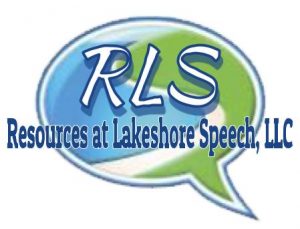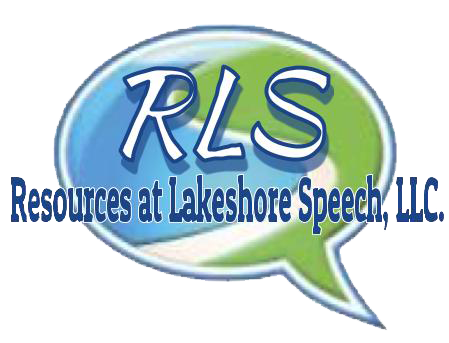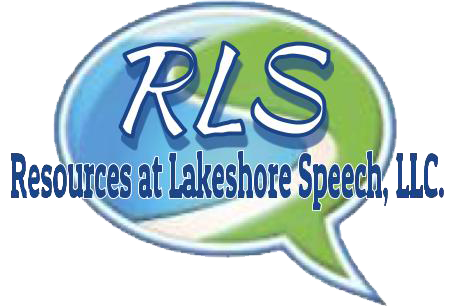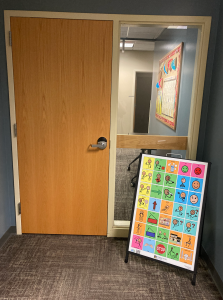
April showers bring May flowers, what do May flowers bring?
Better Speech and Hearing Month!
Better Speech and Hearing Month increases awareness about communication disorders and hearing health. As practicing speech-language pathologists, this is the month that our profession gets a little more attention.
What do Speech-Language Pathologists do?
If you know you know! Your friendly Speech therapist wears many hats. Whether you are working in the hospital setting, school setting, private practice or nursing facilities, working with newborns, infants, toddlers, school age, adults or geriatrics a speech-language Pathologist (SLP) can carry out a wide array of services. Speech-Langauge Pathologists deliver services in the areas of collaboration; counseling; prevention and wellness; screening; assessment; treatment; modalities, technology, and instrumentation; and population and systems.
Collaboration, Counseling and Prevention/Wellness:
Speech-language pathologists (SLPs) work as part of a team alongside other professionals, individuals, and families to provide the best possible care. They help to make sure everyone’s needs and goals are understood. SLPs also consult with other experts, coordinate services, and often help develop school or early intervention plans. With access to global resources and ongoing education, they stay up to date to offer effective, collaborative support.
As the role of your SLP continues to broaden, they work to prevent communication and swallowing problems by identifying risks early and teaching ways to reduce their impact. They work with individuals and communities to raise awareness, promote healthy habits, and improve overall well-being. Their goal is to support better quality of life and reduce the chances of these issues becoming more serious.
Providing support and guidance to individuals and their families as they cope with communication or swallowing difficulties is another role of an SLP . They help people understand their challenges, make informed decisions, and manage the emotional effects that come with these disorders.
Screening, Assessment and Treatment
The scope and practice of a speech-language pathologist varies as does every single person they treat. An SLP can provide treatment in the areas of fluency (stuttering), language – spoken and written, speech production (articulation), cognition, voice, resonance, feeding and swallowing and auditory habilitation and rehabilitation.
Within each of these areas are the varied populations that SLPs can and do provide exemplary service. Speech-language pathologists (SLPs) help people of all ages who have trouble speaking, understanding language, or swallowing. These challenges can be caused by a variety of health issues. For example, babies who are born early or with low birth weight may need support, as well as children with developmental conditions like autism, ADHD, or learning disabilities.
SLPs also work with people who have trouble using their voice, breathing while talking, or protecting their airway when eating. They help individuals with physical differences such as cleft palate or tongue and jaw issues, and those with genetic conditions like Down syndrome. People with brain injuries, strokes, dementia, or diseases like Parkinson’s can also benefit from speech therapy. Even habits like mouth breathing or trouble chewing can fall under an SLP’s care.
Technology/Instrumentation, Population and systems
When working to better the lives of their clients, Speech-language pathologists (SLPs) use advanced tools and technology to assess and treat communication, feeding, and swallowing disorders. They also help develop new technologies and apply them to improve care. This can include using communication devices (AAC), special imaging tools to look at how someone swallows or uses their voice, and even telehealth to reach people who can’t come to a clinic. SLPs may also use tools like ultrasound or teach alternative ways to communicate, such as sign language, when needed.
In addition to providing direct care, speech-language pathologists (SLPs) help improve overall health, education, and service delivery for the people they support. They use clear, simple language, work closely with other professionals, and design strategies that make care more effective and efficient. SLPs also coach families, support teachers, and help create better communication environments, all while keeping costs down and focusing on what matters most to each individual.


SLPs aren’t just in the therapy rooms
When you think of a Speech-Language Pathologist, you might envision a therapy room or clinical setting. Speech-Langauge Pathology transcends in the professional domain providing advocacy and outreach, supervision, education, research, and administration and leadership as well.
Advocacy and Outreach
SLPs play an important role in advocating for both their profession and the individuals they serve. They work to raise awareness, promote education, and reduce barriers to communication caused by social, cultural, or language differences. SLPs also engage with lawmakers and government agencies to improve access to services and secure funding for communication and swallowing support. They may participate in professional organizations, educate the public, and collaborate with others to push for fair, effective policies. Advocacy also includes helping schools and agencies understand the full scope of an SLP’s role, from therapy to paperwork and everything in between.
Supervision and Education
Supervision is an important part of a speech-language pathologist’s job and involves guiding others across clinical, administrative, and technical areas. SLPs are responsible for supervising students, assistants, new professionals, and sometimes even peers. This role includes teaching, mentoring, and offering emotional support to help others grow and provide high-quality care. SLPs work to build positive, supportive relationships with those they supervise and continue learning how to be effective leaders. Good supervision helps improve services and supports the overall success of the profession.
Speech-language pathologists also serve as educators, teaching students at universities and offering continuing education to other professionals. They mentor students at all levels, provide training for those entering the field, and teach courses for aspiring speech-language pathology assistants. Additionally, SLPs help other professionals stay up-to-date through ongoing learning opportunities.
Research, Administration and Leadership
Another area where a speech-language pathologist may contribute is research focused on improving understanding of communication, thinking, reading, and swallowing. They often work with other researchers, follow important research rules and laws, and may apply for grants to support their work. This research helps improve care and create new ways to support people with communication and feeding challenges.
Administrative roles in schools, healthcare, private practice, and other settings are another example of areas where you might find a speech-language pathologist. They help manage staff, budgets, and program development, while ensuring services follow laws and regulations. SLPs may also lead programs beyond their own field and work to create manageable workloads and effective services, especially in schools.
Conclusion
Speech-language pathologists do so much more than many people realize! From therapy and education to research, advocacy, and leadership, SLPs support people of all ages in every stage of life. Better Speech and Hearing Month is the perfect time to celebrate the depth and value of this amazing profession—and to thank the SLPs who help individuals find their voices, improve their communication, and live fuller lives every day.






